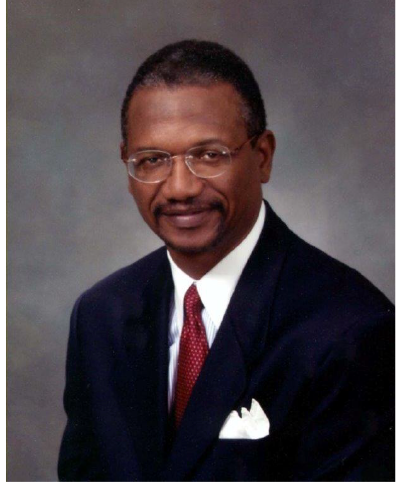The Chron endorses Colin Allred in the Democratic primary for US Senate.

Colin Allred
Texas voters eager to see U.S. Sen. Ted Cruz retire to Cancun permanently, not just on a quick trip during a devastating winter storm, have a choice between two very different candidates in the March 5 Democratic primary.
Choosing an effective challenger to a junior senator who has done little but talk, tweet and instigate during his dozen years in office, they can vote with their head or with their heart. That’s our impression in a contest between the two viable contenders in a nine-person race, although we suspect the impression is a bit misleading.
Voters who go with their head will likely cast a ballot for U.S. Rep. Colin Allred, a 40-year-old, three-term congressman from Dallas who touts his pragmatism and his ability to work with colleagues from both sides of the aisle. Calm and measured, at times to the point of being bland, the civil rights attorney and former NFL linebacker is the establishment choice. He enjoys a sizable fund-raising edge over his opponents, touts big-name endorsements and holds a commanding lead in polls.
Those who go where their heart leads them may favor state Sen. Roland Gutierrez of San Antonio, a longtime Texas House member before being elected to the state Senate in 2022 to represent a district that stretches 400 miles to Big Bend National Park. A 53-year-old immigration lawyer, Gutierrez casts himself as an outspoken Bernie Sanders-style populist. He is, he says, “unapologetically progressive.”
Deeply affected by the horror of what he saw in 2022 on the day of the mass shooting at Robb Elementary School in Uvalde, a town in his Senate district, Gutierrez doesn’t hide his feelings. He told the Chronicle editorial board that he decided to run for the U.S. Senate “because of probably one day and one moment, and that was May 24. What built after that, I just never left there.”
Allred, who in 2018 defeated Republican incumbent Pete Sessions, a 22-year House veteran, as part of the “blue wave,” told Gutierrez in our screening that he admired his passion but accused him of “reflexively choosing whatever the progressive slogan of the day is.” Sitting side by side, the two men occasionally sniped at each other. Allred kept his composure, maintaining a “consensus builder” posture that he says will help him get things done in a divided Washington, and wincing at Gutierrez’s name-calling of some Republicans as “crazy nuts” and “terrorists.”
“I’m proud that I was the most bipartisan member of the Texas delegation,” he told us. “I’m proud that over 70% of the bills that I’ve cosponsored in Congress have been bipartisan.”
Longer-shot candidates in the race include former Nueces County District Attorney Mark Gonzalez, who recently resigned in the face of a lawsuit seeking to remove him from office on the basis of incompetence and official misconduct; Gonzalez dismissed the lawsuit by a conservative leader as a political attack. Dallas-area state Rep. Carl Sherman, who didn’t seek re-election after three terms, is also running. They have no shot at winning but could siphon off enough votes to force the two top contenders into a runoff.
For Texans voting in the Democratic primary, the relevant questions are two-fold: One, which candidate represents their views and values? Two, which candidate can oust an incumbent who, despite his die-hard followers, nearly lost to Democratic former U.S. Rep. Beto O’Rourke in 2018? (Cruz won by 2.6 points.)
Allred as previously noted has raised a ton of money. Gutierrez is way behind but is in the respectable zone, while no one else is close to being credible on that score. I think whoever the nominee is will have plenty of money, I think whoever it is will be endorsed by the Chron for November with basically the same language they’re using here, and I think it’s fine to vote for either of them.
Other endorsements from the weekend:
All of the Democratic incumbents on the First and 14th Courts of Appeals.
Democratic voters this year must weigh how much emphasis to put on diversity on the two courts of appeal for the 10-county region that includes Houston. In all six races, voters could elect someone from an underrepresented background, and in four of the races, a Black woman. While we applaud the challengers, many of whom have had distinguished careers, we prioritize candidates’ experience with appellate law. Challengers must make a compelling argument for throwing out the sitting justice, in whom taxpayers have already invested.
The ideal candidate pool is both qualified and reflects our state’s demographics. That goal is impeded by several factors, not the least of which is the salary for this kind of bench. Experienced appellate lawyers make good money. First-generation lawyers are simply less likely to take a big pay cut to serve as a justice, though there are notable exceptions. We urge schools, courts, firms and the Legislature to act with urgency to make the world of appellate law as multihued as our great state.
The arguments in each race vary, so go read them all. There are ten Justices up for re-election following that massive sweep from 2018; the four that do not have primary challengers are Justices Sarah Beth Landau, Julie Countiss, Frances Bourliot, and Meg Poissant. My Q&A with Justice Richard Hightower is here, and my just-published Q&A with Justice Charles Spain is here. I will have Q&As in the following days with Justices Peter Kelly, Meagan Hassan, and Jerry Zimmerer.
HCDE incumbents John McGee and Richard Cantu.
Politics is always going to attract some people more interested in the game than the work, but there are occasional exceptions. John McGee, 59, is a breath of fresh air.
He began his term in November, when he was appointed after a trustee resigned to run for state office. Despite his short time on the board, McGee has proven himself valuable, bringing the financial know-how to assess and manage the department’s budget of $165 million.
Born in Oklahoma and raised in Dallas, McGee derives his passion for equal educational opportunities from his own experience in the federal Head Start program. He began his 33-year career in public service as a budget examiner with the Legislative Budget Board, where he monitored over half a billion dollars in state agency budgets and determined the fiscal impact of legislation.
While working at the Texas Education Agency in the 1990s, McGee was asked to serve as the chief financial officer for a struggling Dallas school district under TEA control that was known for its board infighting and mismanaged funds. Within four months, he says he helped get spending under control and paid back the $2 million the district owed the state, persuading TEA to relinquish control.
“It was a nightmare, but it was the best place to learn about school finance, board governance and relationships, as well as academics,” McGee said.
[…]
Voters have two accomplished, capable candidates with strong ideas for this at-large position.
The incumbent, Richard Cantu, 54, is a native Houstonian who has spent the better part of three decades deeply committed to public service as the director of citizens’ assistance under two mayors, treasurer for the Harris County Department of Education, and heading the East Aldine Management District.
“I’m the trustee that asks the toughest questions at the table, challenging the administration to do more with the resources we have,” Cantu told us.
When Cantu saw the dismal state of the department’s adult education center, he helped them connect with Lakewood Church to host expanded programming opportunities. Cantu then advocated for a new, state-of-the-art building that through bonds they were able to make a reality. The $19 million building, complete with an inspiring “Goddess of Grit” mural and 17 classrooms, allows HCDE to host three times the number of adult learners, Cantu said.
As the son of parents who emigrated from Monterrey, Mexico, to the U.S. with only a sixth-grade and high school education, Cantu understands the critical difference ESL, GED. citizenship classes and vocational training can make.
His opponent, Josh Wallenstein, 48, agrees. But he argues HCDE can go even farther, partnering with unions and nonprofits to provide long-term career training. A compliance and ethics attorney by trade, with degrees from Southern Methodist University and Stanford Law School, Wallenstein brings a fresh perspective and welcome focus on “avoiding even the appearance of impropriety” on the board by drawing up airtight contracts that better detail the limits of trustees.
McGee is now my HCDE Trustee in Precinct 1, replacing Danny Norris. I admit I missed that bit of news and only realized it when I started seeing the filings. He seems fine and his opponent is a non-entity, so all good there. This endorsement piece started by noting how Republicans have hated the HCDE and tried to get rid of it for some time, and cited the examples of former Trustee Mike Wolfe and current trustee Eric Dick as examples of bad behavior that means HCDE “needs trustees voters can actually trust”. Which is all well and good except for the fact that both Wolfe and Dick are Republicans and none of that has anything to do with the races they were endorsing in. I’m going to go do a half hour of mindfulness exercises now so that I don’t punch a hole in the wall.
Mo Jenkins for HD139.
Just a few years ago, Mo Jenkins was a college junior visiting with lawmakers as part of a campus trip to the Texas Capitol. Now she’s the clerk for the House Corrections Committee and has had a hand in some major legislative wins, including negotiations behind the so-called Herrero budget amendment that helped sink school vouchers in the regular session with bipartisan support. Only 25 years old, Jenkins’ knowledge of the lawmaking process would be the envy of elder statesmen. She’s hoping to put it to work next session.
Jenkins would be a stellar candidate on her legislative chops alone but she also brings a rich lived experience. When she was just 13 years old, her mother died. She lived with family for a bit but she told us she fell through the cracks of foster care and ended up homeless as a result.
“I am the youngest person at this table,” she said in a recent screening with the editorial board, “but I’m also the very product of Republican and Democratic failures,” noting the barriers that she has nonetheless scaled skillfully. “I’m very proud of that.”
Just in time for my interview today, which you should listen to.

































